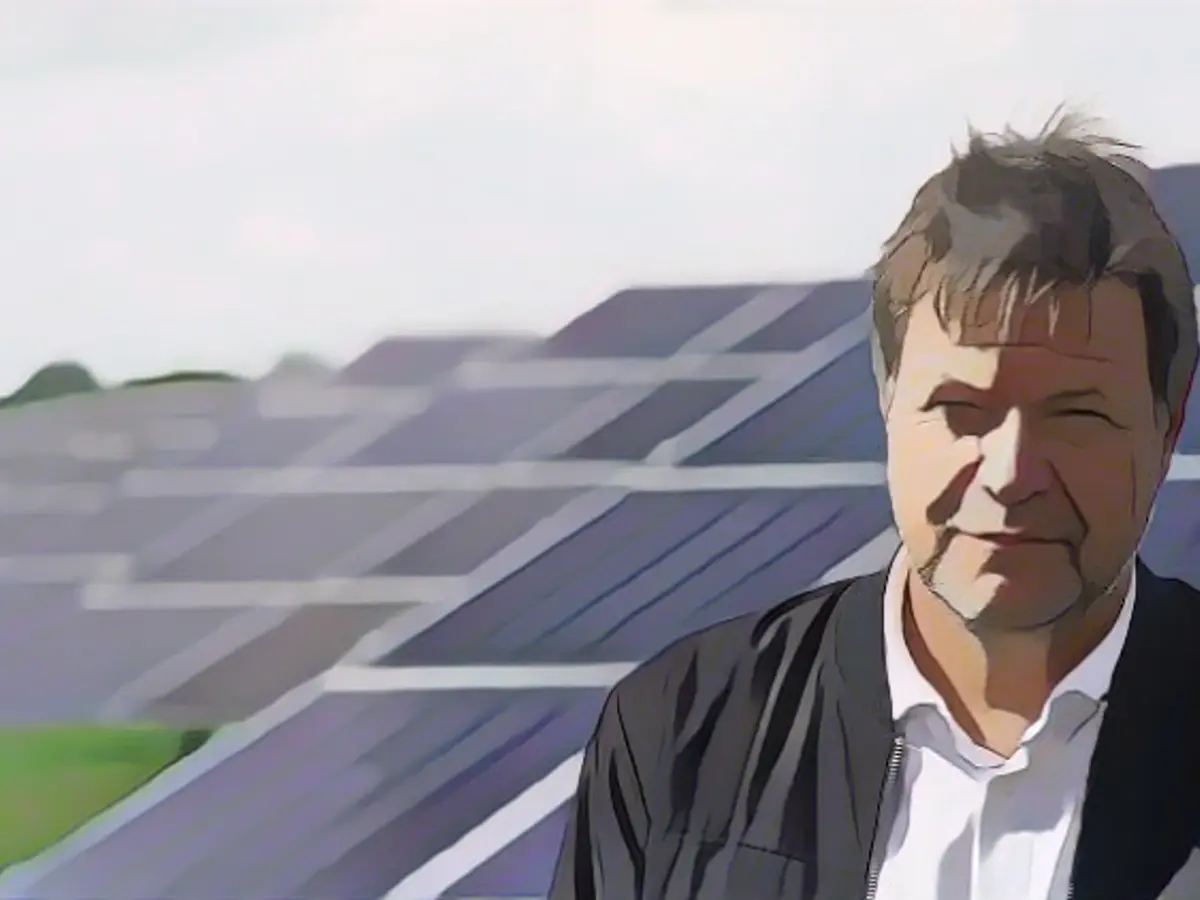Habeck plans "resilience bonus" for German solar manufacturers
The solar industry is booming, but manufacturers in Germany are barely noticing the run on their books. Cheap panels from China are in demand, and overcapacities there are depressing prices. The budget chaos of the traffic lights is doing the rest. Economics Minister Habeck wants to intervene with bonus payments.
Federal Economics Minister Robert Habeck wants to strengthen German manufacturers of solar panels with a bonus in the competition against low-cost suppliers from China. "Solar products from Germany meet standards that others do not. For example, manufacturers in Germany often do not use toxic substances or have a high degree of efficiency," Habeck told the Redaktionsnetzwerk Deutschland (RND). "Anyone who makes such a difference and contributes to resilience should be rewarded for it," the Green politician continued. "That's why I want us to enable a pilot tender for a kind of resilience bonus."
A similar instrument is currently being negotiated at EU level, with the trialogue between the European Council, Parliament and EU Commission on the Net Zero Industry Act (NZIA) due to start at the beginning of 2024. However, Habeck does not want to wait until this is passed: "It is important that we get this done now at national level via the EEG. The solar package that is currently in parliament is a good opportunity to implement this now."
Although the expansion of solar energy is currently booming in Germany, the vast majority of panels are coming from China, as Habeck laments. "I think it's important that Germany has at least a basic share of its own production. Value creation and jobs should also be created here. And it is also a question of economic security that we are not exclusively dependent on imports."
Solar industry suffers
Overcapacities in China have triggered a brutal price war in the solar industry, which is having a huge impact on manufacturers in German-speaking countries. SMA Solar's share price has almost halved since the summer. On the Swiss stock exchange, the shares of Germany's largest solar cell manufacturer Meyer Burger have already lost two thirds of their value since the beginning of the year.
However, the prospects are not only suffering from the favorable competition from China, but also from the budget chaos of the traffic light: After the constitutional court ruling on the Climate and Transformation Fund (KTF), the federal government must make savings in the new budget - including in the 1.3 billion euro solar subsidy.
In an interview with RND, Habeck admitted that the federal government's financial options are limited. "The program has been reduced," he said, referring to the original subsidy plans in the PV sector. "That is painful, but we are working on solutions outside of the Climate and Transformation Fund to improve things."
Meanwhile, solar cell manufacturer Meyer Burger believes in Germany as a business location despite the cuts and considers it possible to build up additional production capacities. Meyer Burger CEO Gunter Erfurt told the business magazine "Capital" that an increase in production capacities for cells and modules within the framework of the Federal Ministry of Economics' expression of interest procedure is "still envisaged in principle" in the revised Climate and Transformation Fund. He added that talks with the German government were still ongoing. He also referred to the latest funding commitment for Meyer Burger at EU level amounting to 200 million euros. This could possibly compensate for cuts at national level, he said.
Read also:
- Why there is still no EU funding for green Saar steel
- 3 billion Saar Fund is unconstitutional
- The chemical industry has little confidence
- Politicians at a loss after shock news
Habeck's proposal for a "resilience bonus" is aimed at supporting German solar manufacturers, who are struggling against low-cost Chinese competitors due to subsidies and overcapacities in China. This bonus would reward firms that adhere to higher standards and contribute to overall resilience.
The EU is also considering a similar measure through the Net Zero Industry Act (NZIA), with the trialogue set to begin in early 2024. However, Habeck wants to implement this at a national level as soon as possible, taking advantage of the current solar package in parliament.
Solar cell manufacturer Meyer Burger, although suffering from budget cuts, remains optimistic about Germany as a business location and is open to increasing production capacities, as negotiations with the German government continue and they await EU funding.
Source: www.ntv.de








